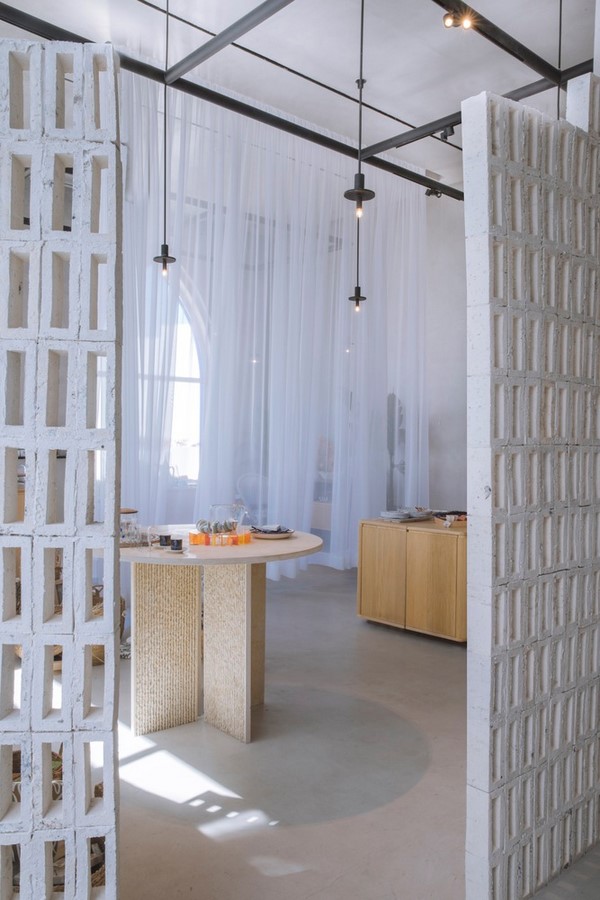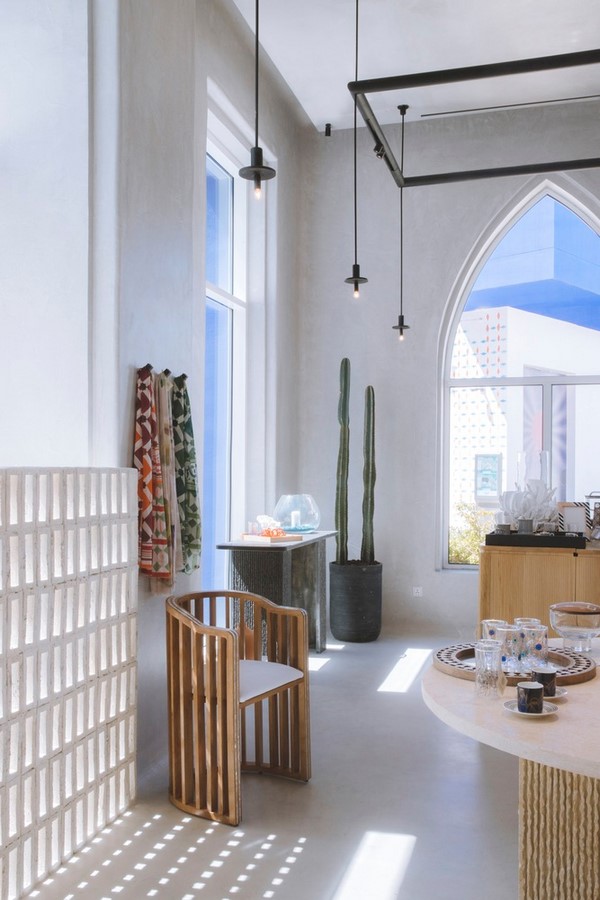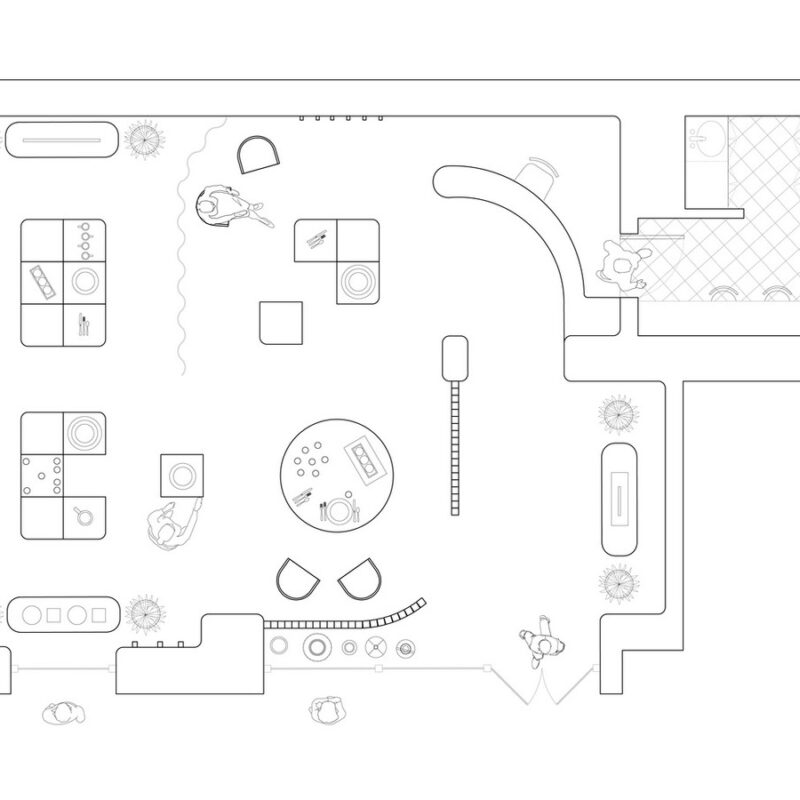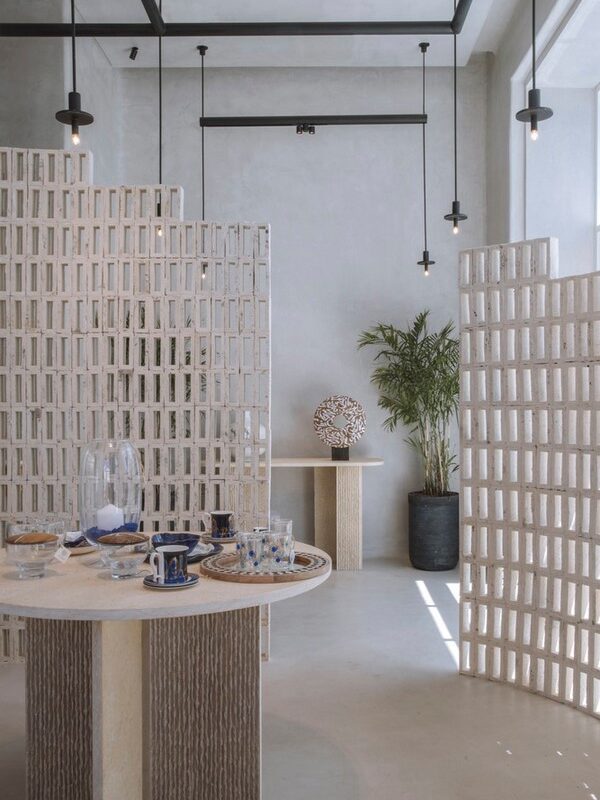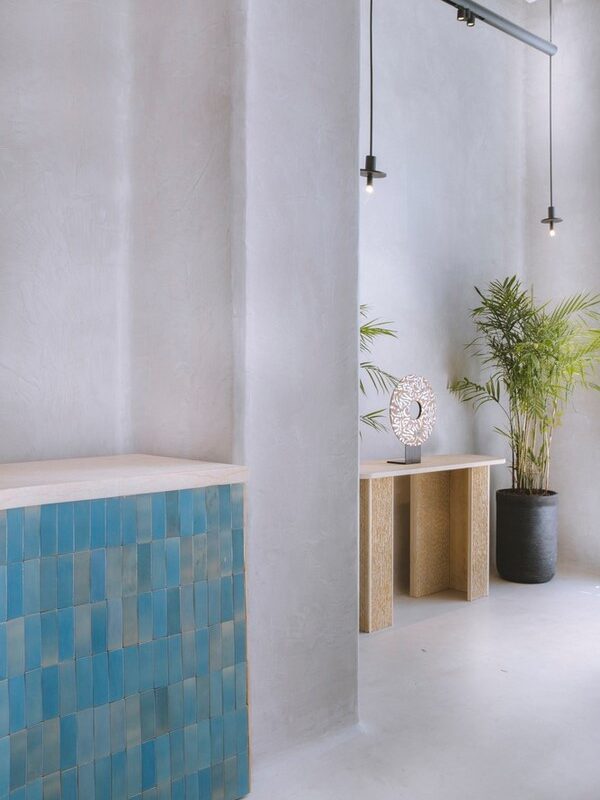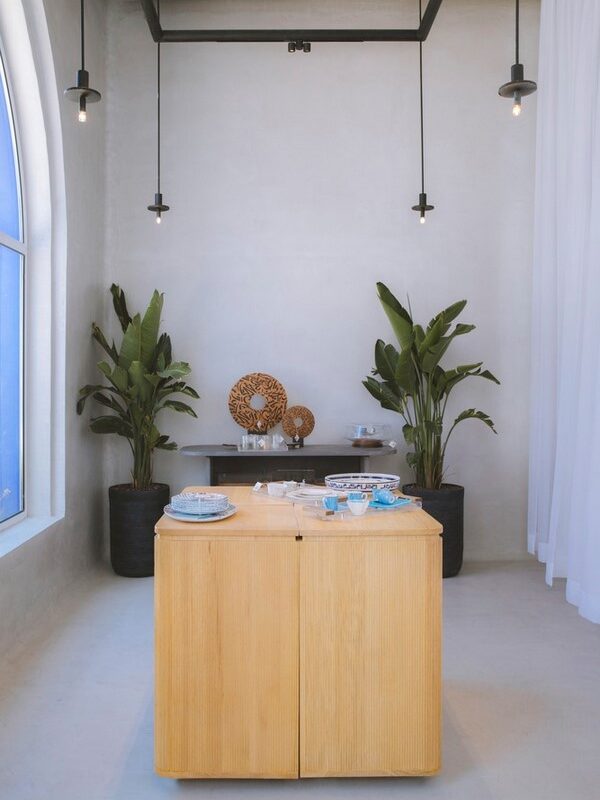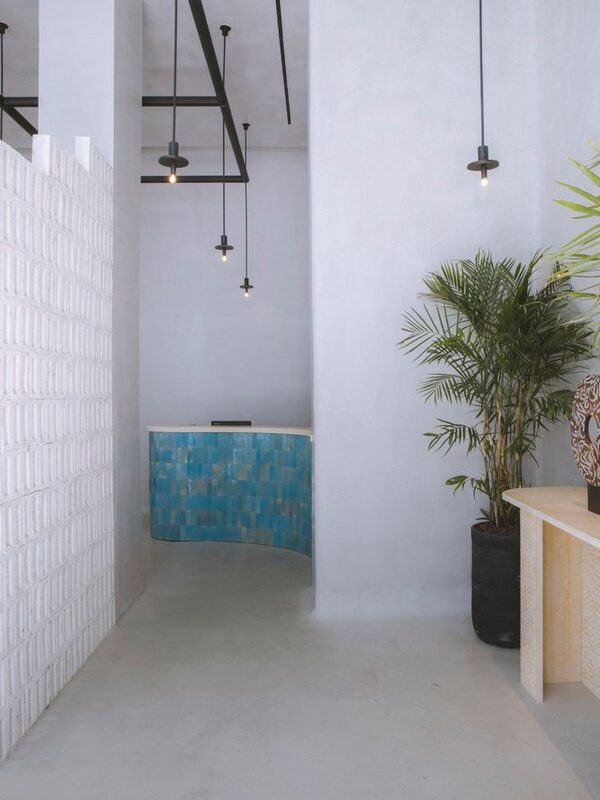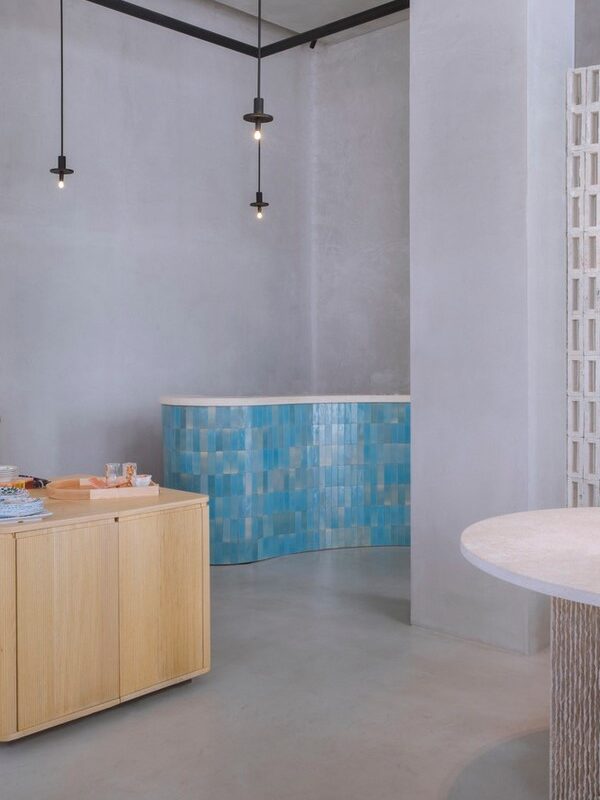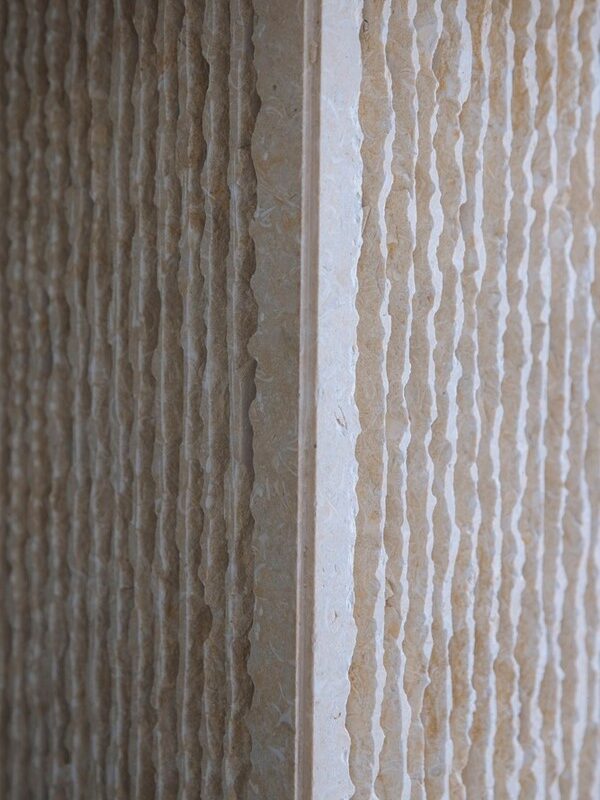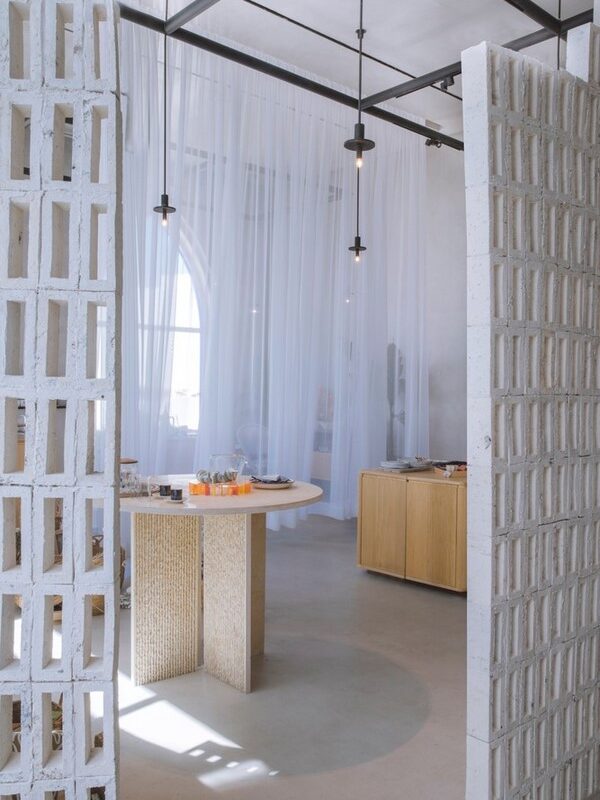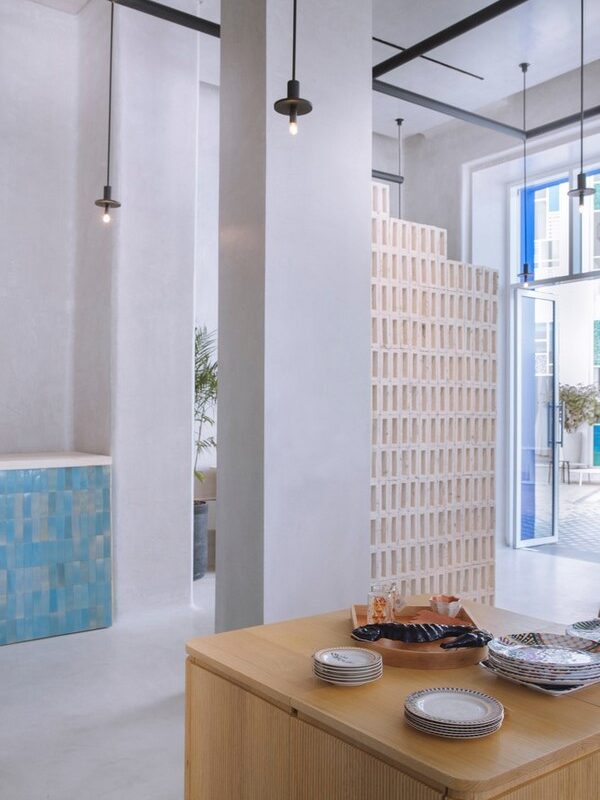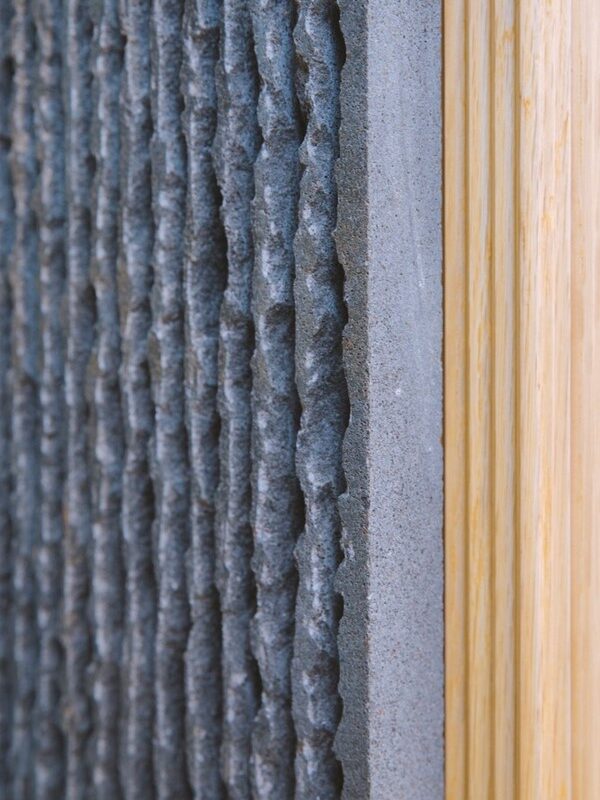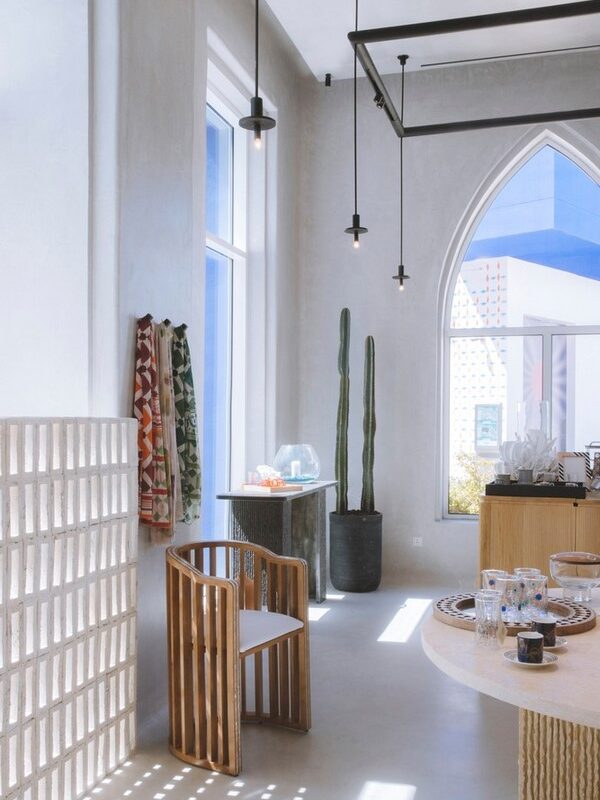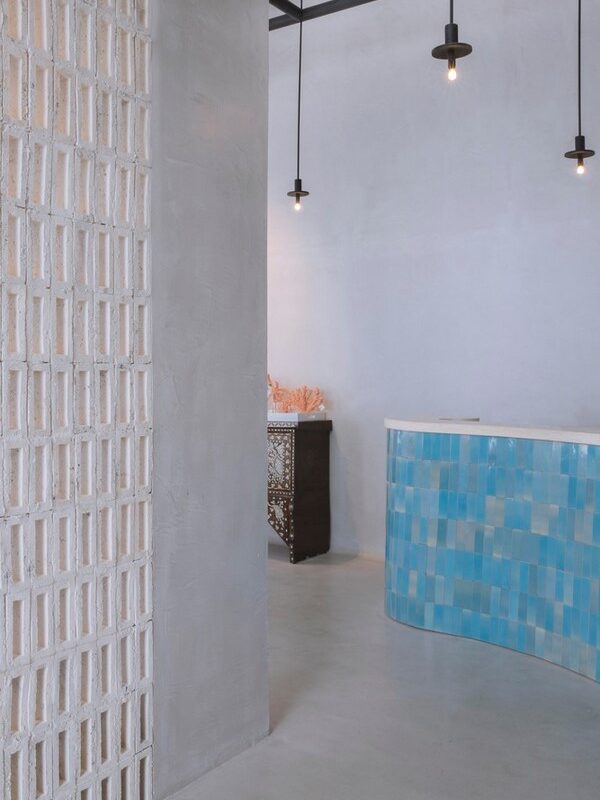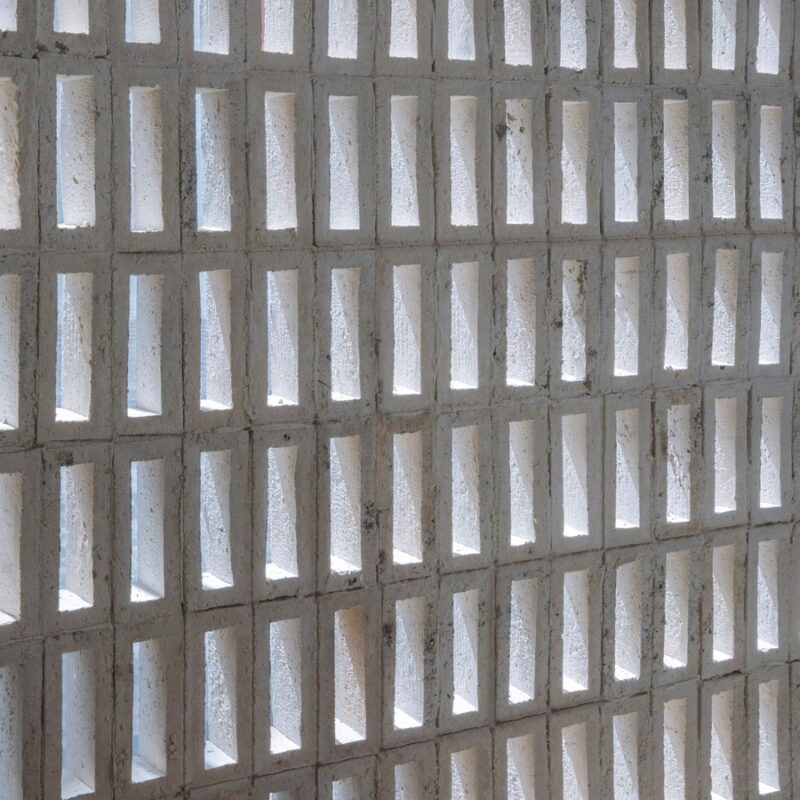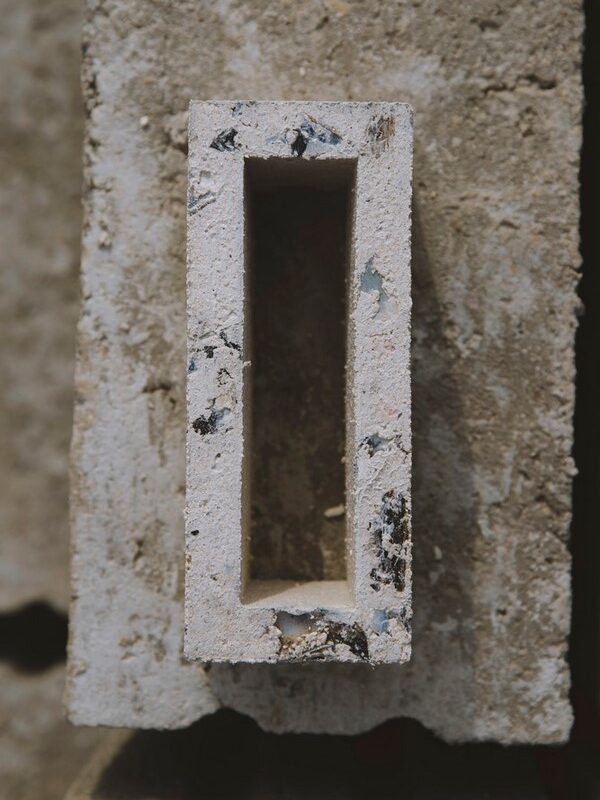The Decoration One Aqaba Boutique project in Aqaba, Jordan, aimed to showcase how innovative materials could address climate change, foster a circular economy, and promote tradition and culture.
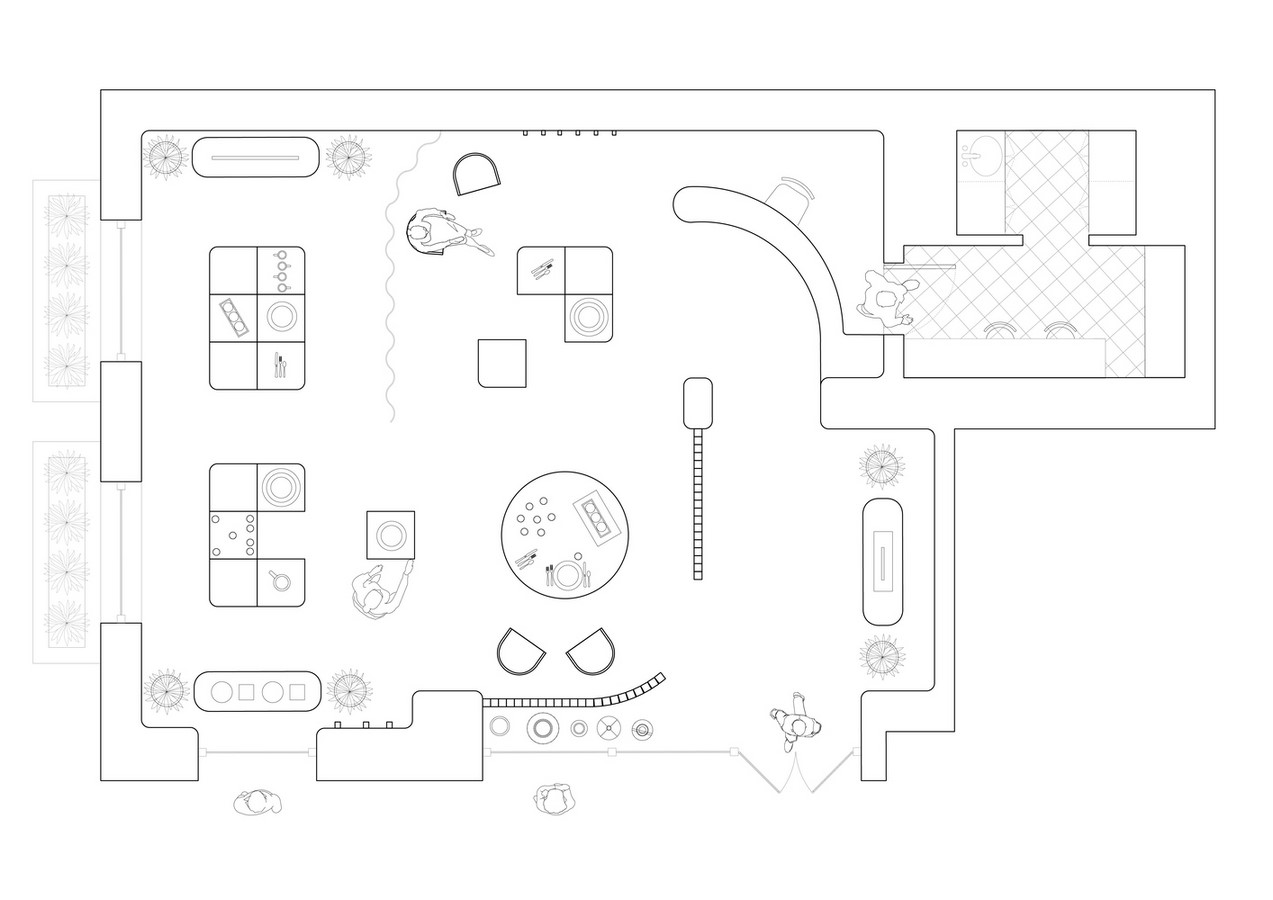 Material-Driven Approach
Material-Driven Approach
Collaborating with Decoration One’s craftsmen, the project adopted a materiality-driven approach to design a retail space that prioritized craft and low-carbon materials. A key element was the incorporation of a bio-based concrete Mashrabiyya, traditionally used as a sunshade, which was reimagined to extend spatially within the boutique, enhancing the retail experience.
Sustainable Material Sourcing
To create the bio-based concrete Mashrabiyya, shells from oysters, mussels, and clams, sourced from seafood restaurants in Aqaba, were crushed and used as aggregate. This innovative approach not only repurposed waste but also sequestered carbon, contributing to the reduction of carbon emissions associated with construction.
Circular Economy Integration
The project embraced a circular economy model by collaborating with local craftspeople and seafood restaurants to collect waste materials. Sea bricks, made from recycled seafood waste, were used in construction, demonstrating how local circular economies could minimize environmental impact and promote sustainability.
Flexibility and Adaptability
Flexibility was paramount in accommodating Decoration One’s changing collections. Modular oak wood tables and curtains were employed to partition the space according to seasonal collections. Hand-chiseled local Basalt and Limestone tables added spatial interest and provided alternative product display options, enhancing the boutique’s versatility.
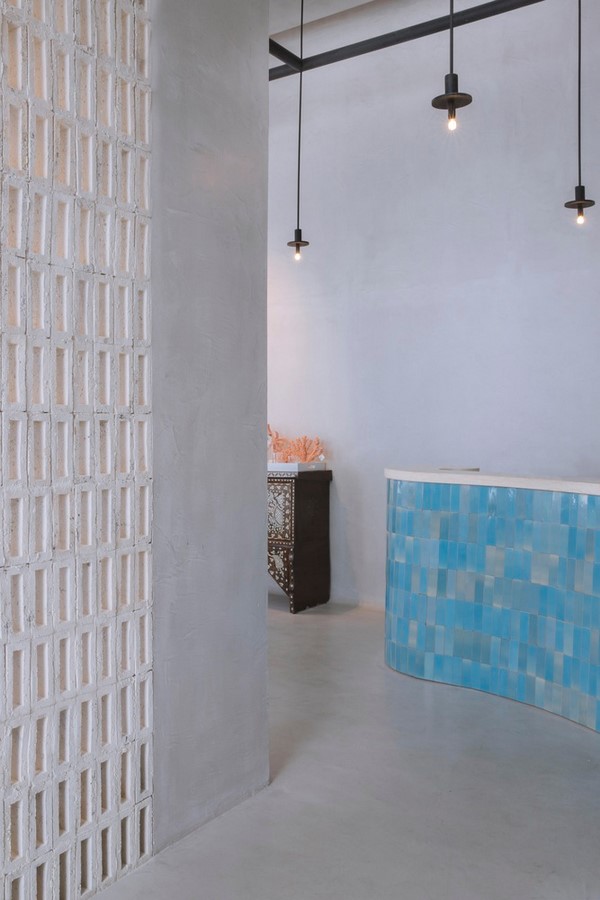 By integrating innovative materials, sustainable practices, and local craftsmanship, the Decoration One Aqaba Boutique exemplifies how design can contribute to environmental stewardship and cultural preservation.
By integrating innovative materials, sustainable practices, and local craftsmanship, the Decoration One Aqaba Boutique exemplifies how design can contribute to environmental stewardship and cultural preservation.



